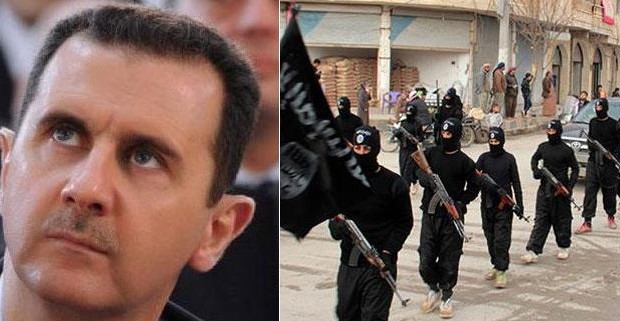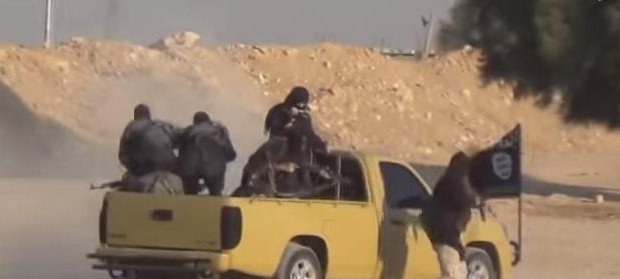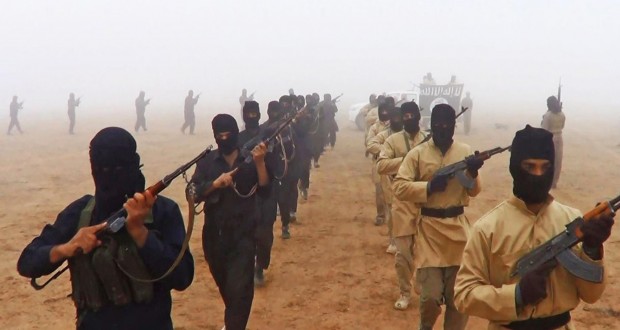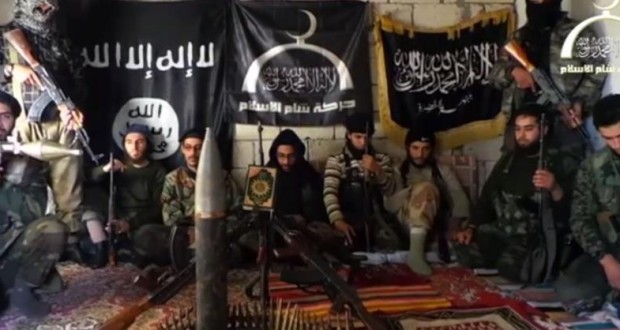Raphael Levy
July 20, 2014
Latest Articles, Middle East and North Africa, Security and Defence
The recent declaration of a Caliphate by IS (Islamic State, formally ISIS) could have huge security ramifications throughout the Middle East. In territory captured in both Syria and Iraq by IS, the Islamic State has blurred the borders, leaving the potential for a break-up of an increasingly unstable Iraq an ever growing possibility.
Read More »
Raphael Levy
July 10, 2014
Latest Articles, Middle East and North Africa, Security and Defence
America’s commitment to the principle that one’s enemy’s enemy is one’s friend has come back to bite them on more than one occasion, and now Bashar Al-Assad is beginning to realise that even just leaving one’s enemies to fight it out can be problematic.
Read More »
Huw Anslow
July 8, 2014
Middle East and North Africa, The Policy Unit
The decision by the UK government to take steps towards the re-opening of the UK Embassy in Iran carries with it a potentially dangerous precedent, firstly in misrepresenting the values supposedly underlining UK foreign policy, and secondly in providing tacit approval for Iran's current actions, and by extension how Iranis conducting itself regionally and internationally.
Read More »
Simon Schofield
July 3, 2014
Middle East and North Africa, Security and Defence
We humans do have a strange way of dealing with illness at times. So many of us seem to take the ‘if it ain’t hanging off it’s probably fine’ approach to that twinging chest pain or that cough that has not gone away for a month.
Read More »
Daniel Curwin
July 1, 2014
Iraq and Syria, Latest Articles, Middle East and North Africa, The Policy Unit
The active sectarian rivalry and conflict in Iraq – long exploited by successive governments in Bagdad – has reached crisis proportions. Mosul, Iraq’s second-largest city and a primary oil centre, was overrun and occupied June 12th 2014 by the Sunni militant group the Islamic State of Iraq and al-Sham) (ISIS) which formerly fought under the al-Qaeda banner. ISIS are making gains on their previous successes in taking large parts of the central city of Fallujah in December 2013
Read More »
Raphael Levy
June 29, 2014
Middle East and North Africa, Security and Defence
The rise of ISIS (Islamic State of Iraq and Al Sham) in Iraq and Syria is a source of major concern across the Middle East. The Islamist group’s ambition to create an Islamic state is not limited to Iraq and Syria, as confusion over its name may suggest.
Read More »
Rowan Allport
June 26, 2014
Iraq and Syria, Middle East and North Africa, Security and Defence
The initial step in assessing the potential military response to recent events in Iraq is to seek to understand how the security situation in the country degenerated so quickly. The most obvious and urgent question that needs to be answered is how as few as 800 ISIS militants (out of a total of around 6,000 in Iraq), were able to overrun a garrison of around 25,000 Iraqi troops.
Read More »
Julie Lenarz
June 18, 2014
Iraq and Syria, Middle East and North Africa, Security and Defence
On Tuesday, the jihadist group ISIS (Islamic State of Iraq and al Sham) launched a long-planned assault on Iraq, seizing control of Mosul, the country’s second largest city, after taking large parts of the central city of Fallujah and nearby Ramadi in December 2013.
Read More »
Rob Marchant
June 18, 2014
Middle East and North Africa, Opinion
If recent events in Ukraine were not disturbing enough for those who might occasionally worry about the future for their children and grandchildren, one need only now look towards the Middle East, and a little further.
Read More »
Jacob Campbell
June 17, 2014
Middle East and North Africa, Security and Defence
The fall of Mosul, allegedly to the Islamic State of Iraq and Syria (ISIS), is not the military victory it has been made out to be. For a start, as the New York Times and Agence France-Presse report, ISIS gunmen (who faced an army outnumbering them fifty-to-one) were able to occupy strategic positions around the city only after Iraqi commanders ordered their troops to stand down and retreat.
Read More »

 Human Security Centre Human Rights and International Security Research
Human Security Centre Human Rights and International Security Research





